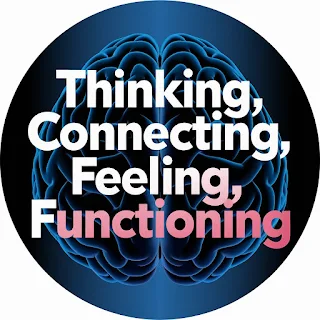Understanding Mental Wellness: A Path to a Better Life
Key Dimensions of Mental Wellness
- Thinking: The way we process information, solve problems, and make decisions.
- Connecting: Building meaningful relationships and interacting socially.
- Feeling: Recognizing and managing emotions in a healthy way.
- Functioning: Effectively managing day-to-day activities and responsibilities.
Characteristics of a Mentally Healthy Person
A mentally healthy individual typically exhibits the following qualities:
- Optimism: Seeing challenges as opportunities for growth.
- High Self-Esteem: Confidence in oneself and one’s abilities.
- Self-Care: Taking the time for personal well-being.
- Good Physical Health: Maintaining physical health as a foundation for mental wellness.
- Social Engagement: Meaningful connections with others.
- Hobbies and Interests: Participating in activities that bring joy and fulfillment.
- Emotional Resilience: The ability to bounce back from setbacks.
- Humor: Maintaining a sense of humor even in tough times.
Characteristics of a Mentally Unhealthy Person
On the flip side, a person struggling with mental health challenges might experience:
- Anxiety and Depression: Feelings of constant worry, sadness, or hopelessness.
- Emotional Outbursts: Difficulty regulating emotions in a balanced way.
- Sleep Issues: Trouble falling asleep or staying asleep.
- Appetite Changes: Sudden weight loss or gain, loss of interest in food.
- Withdrawal: A tendency to isolate and avoid social interactions.
- Substance Abuse: Reliance on alcohol or drugs to cope.
- Guilt: Excessive feelings of self-blame or inadequacy.
Ways to Improve Mental Health
There are several practical steps you can take to improve your mental wellness:
- Exercise Regularly: Physical activity helps reduce stress and boost mood.
- Eat Well: A balanced diet supports both physical and mental health.
- Prioritize Sleep: Adequate sleep is essential for brain function and emotional regulation.
- Practice Relaxation: Techniques like meditation, deep breathing, or yoga can help calm the mind.
- Set Goals: Clear goals give a sense of direction and accomplishment.
- Practice Gratitude: Focusing on the positives can shift your mindset.
- Stay Connected: Maintaining strong relationships is crucial for mental health.
Benefits of Good Mental Health
- Eases Stress: It allows you to manage stress in a more balanced and calm way.
- Improves Relationships: Being mentally healthy strengthens social bonds and fosters positive interactions.
- Supports Learning: A clear, focused mind enhances learning and problem-solving abilities.
However, it’s important to note that good mental health doesn’t mean feeling happy all the time. It’s about having the resilience and coping strategies to handle life's ups and downs, and embracing both the good and bad with a sense of balance.
In conclusion, mental wellness is a key pillar to living a fulfilling, productive life. It’s not something we achieve once and for all; it’s a lifelong commitment to self-care, growth, and resilience. By prioritizing mental health, we can build a stronger, more connected, and happier life.


